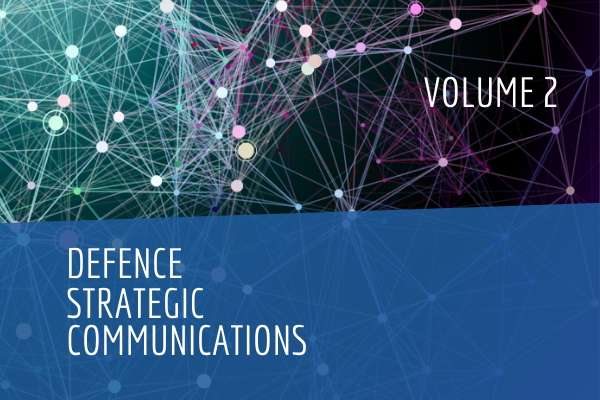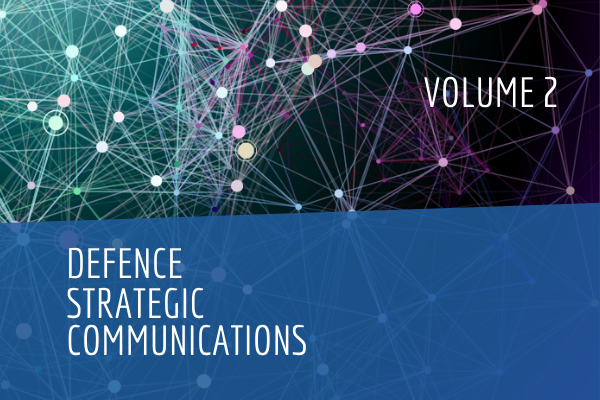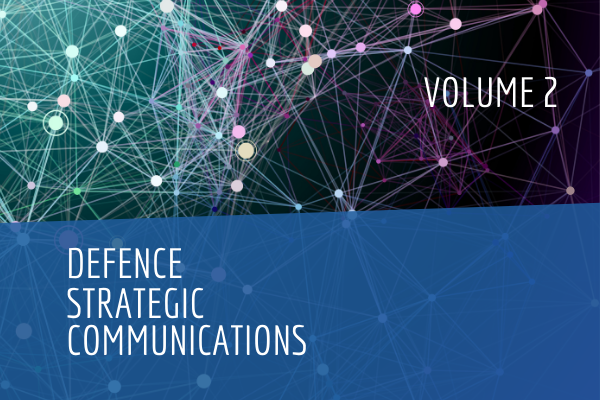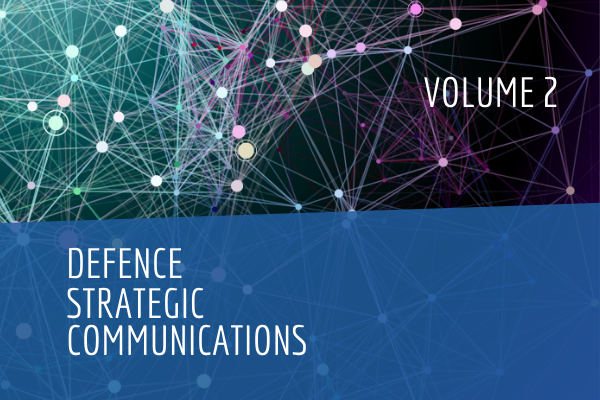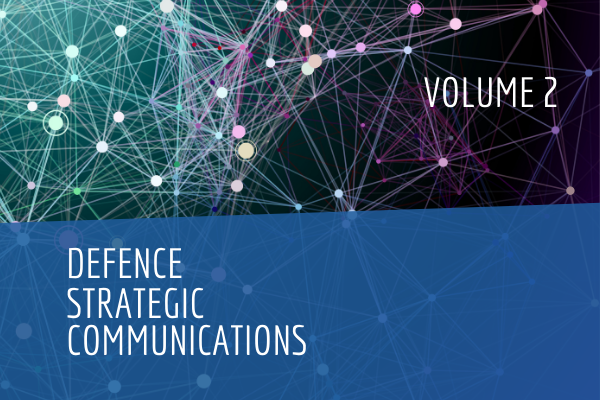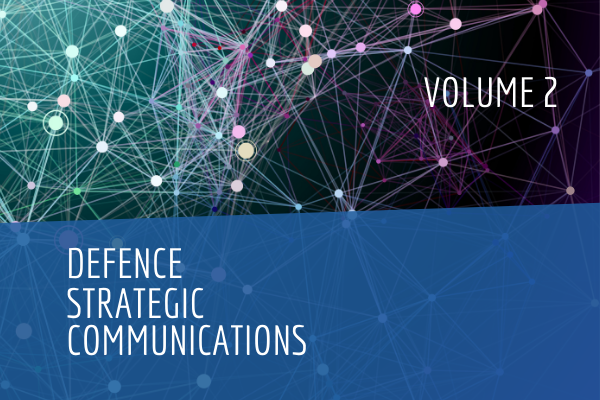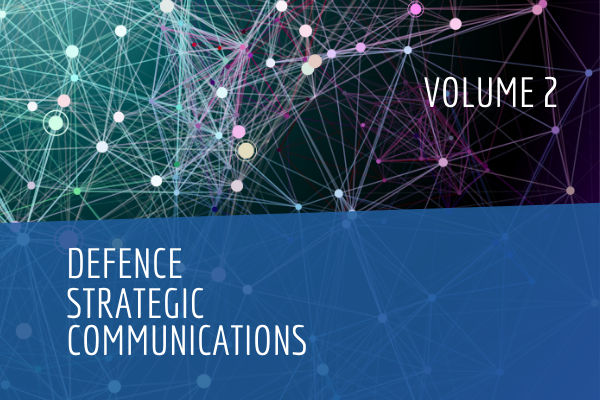Abstract
Contrary to the narrative in much of politics and academia, Russia’s alienation from the West did not start in 2014—it is a lasting and inherent phenomenon. Since the mid-1990s, Moscow’s attempts to ‘capture’ the narrative of Europe or even portray itself later on as a ‘better Europe’, transcended in 2014 into a more overt and antithetical approach of strategically juxtaposing Russia versus Europe, or placing ‘Russia being not (declinist and decadent) Europe’, a part of the likewise allegedly declining ‘West’. Russia’s appeal for European ‘self-denial’ does not only find its supporters in Europe, predominantly populist and radical parties, but also contributes to a more general frustration among Europeans regarding their own self-perception, as well provokes Western ambiguity and uncertainty about its responsibility for regional security affairs, particularly in the European neighbourhood.
This article argues that, by destabilising the immediate vicinity and regional security order, the Russian leadership does not pursue a policy of balancing the Western hegemonic formation, thus strategising a positive competing (counter-hegemonic) framework. Rather, it engages in an anti-hegemonic strategy through a deeply negative spoiler offensive. The article conceptualises Russia’s anti-hegemonic drive as a three-pronged strategic narrative offensive that operationally seeks to 1) ‘desynchronise’ political developments in the European Neighbourhood to ‘distort’ European perceptions of reality; 2) ‘de-articulate’ the West, i.e., splitting the Atlantic democracies from the European mainland; and 3) ‘saturate’ the vacuum with false and fictitious narratives, to sow confusion and maintain manageable disorder.
Keywords: Russia, Western ‘equivalential chain’, Ukraine, strategic narrative offensive, anti-hegemony, spoiler politics
About the authors
James Rogers is Director of the Department of Political and Strategic Studies at the Baltic Defence College in Tartu, Estonia. He researches political warfare and European geopolitical change.
Dr Andriy Tyushka is Lecturer in Eastern European and Russian Studies in the Department of Political and Strategic Studies at the Baltic Defence College. He researches strategic and operational uses of strategic narratives and coarse-power politics in international relations.
Bibliography
Agnew, John, Hegemony: The New Shape of Global Order (Philadelphia: Temple University Press, 2005).
Allison, Roy, ‘Russian ‘deniable’ intervention in Ukraine: How and Why Russia Broke the Rules’, International Affairs 90, no.6 (2014): 1255-1297.
Applebaum, Anne, ‘The Dutch Just Showed the World How Russia Influences Western Elections’, The Washington Post, 8 April 2016.
Applebaum, Anne, ‚Russia’s Next Election Operation: Germany’, The Washington Post, 12 December 2016.
‘Authoritarians Explain Democracy’, Radio Free Europe/Radio Liberty, 20 October 2016.
Baev, Pavel K., ‘Russia as Opportunist or Spoiler in the Middle East?’, The International Spectator 50, no.2 (2015): 8-21.
‘Barack Obama is right: Britain could lead Europe if it wanted to’, The Economist, 22 April 2016.
Black, Conrad, ‘Russia’s Weimar Syndrome’, The National Review, 9 July 2015.
Black, Jeremy, Great Powers and the Quest for Hegemony: The World Order Since 1500 (London and New York: Routledge, 2008).
Blair, Tony ‘The Blair Doctrine’, PBS Newshour, 22 April 1999.
Bowen, Andrew, ‘Russia’s Deceptively Weak Military’, The National Interest, 7 June 2015.
Chrétien, Jean, ‘Firmness and Dialogue: How Best to Respond to Russia’s Challenges in Ukraine, Europe and the West’, InterAction Council, Chairman’s Report on the High-Level Expert Group Meeting, Ottawa, 20 April 2015.
‘Crackdown on NGOs in Russia’, Radio Free Europe/Radio Liberty, 20 April 2016.
de Carbonnel, Alissa, ‘A (Very) Cold War on the Russia-Norway Border,’ Foreign Policy, 20 November 2015.
Delcour, Laure and Kataryna Wolczuk, ‘Spoiler or Facilitator of Democratisation? Russia’s Role in Georgia and Ukraine’, Democratisation 22, no.3 (2015): 459-478.
Delfs, Arne and Henry Meyer, ‘Putin’s Propaganda Machine is Meddling with European Elections’, Bloomberg, 20 April 2016.
Dempsey, Judy, ‘The West’s Self-Imposed Powerlessness’, Carnegie Europe, 15 February 2016.
Fontana, Benedetto, Hegemony and Power: On the Relation between Gramsci and Machiavelli (Minneapolis, London: University of Minnesota Press, 1993).
Freedman, Lawrence, The Transformation of Strategic Affairs (London: Routledge, 2006).
Gareev, Makhmut, ‘Война без срока давности: Опыт Великой Отечественной помог в возвращении Крыма [A War with No Expiry Date: The Experience of the Great Patriotic War Helping to Get Crimea Back]’, Voenno-Promishlenniy Kurier,17, no.583, 13 May 2015.
Gerasimov, Valery, ‘По опыту Сирии... [Based on the Experience of Syria…]’, Voenno-Promyshlenniy Kurier 9, no.624 (8 March 2016).
Griniaev, Serguei N. (ed.), Иррегулярные конфликты: ‘Цветные революции’. Анализ и оценка форм, приемов, и способов ведения операций по смене режимов в суверенных
государствах [Irregular Conflicts: ‘Colour Revolutions’. Analysis and Evaluation of Forms, Methods and Techniques of Regime Change Operations in Sovereign States] (Moscow: ANO ‘CSOiP’, 2015).
Gudkov, Lev, ‘Мечты о прошлом. Почему кризисы приводят к реанимации советских представлений [Dreams of the Past: Why Crises Lead to the Reanimation of Soviet Perceptions]’, Slon.ru, 19 April 2016.
Higgins, Andrew, ‘EU Suspects Russian Agenda in Migrants’ Shifting Arctic Route’, The New York Times, 2 April 2016.
Holmes, James R., ‘Everything You Know About Clausewitz is Wrong’, The Diplomat, 14 November 2014.
Hom, Andrew and Christopher Mcintosh, Alasdair McKay, and Liam Stockdale, (eds.), Time, Temporality and Global Politics (Bristol: e-IR Publishing, 2016).
Jakóbik, Woiciech, ‘A Return to Business as Usual’, New Eastern Europe, 29 October 2015.
Jansen, Frank and Claudia Von Salzen, ‘Verfassungsschutz warnt vor Cyberangriffen aus Russland’, Der Tagesspiegel, 8 December 2016.
‘Joint DHS and ODNI Election Security Statement’, Washington, DC, 7 October 2016.
Joint Investigation Team, ‘Presentation of preliminary results of the criminal investigation of MH17 airline crash’, Nieuwegein, Openbaar Ministerie, 28 September 2016.
Karaganov, Sergei, ‘Европа: окончить холодную войну [Time to End the Cold War in Europe]’, Rossiia v Globalnoi Politike, 8 April 2014.
Keohane, Robert O., After Hegemony: Cooperation and Discord in the World Political Autonomy (Princeton, NJ: Princeton University Press, 1984).
Koshkin, Pavel, ‘How Russia’s Soft Power Failed Shortly After It Started’, Russia Direct, 31 July 2015.
Kuchins, Andrew C., ‘Could 2016 See the Normalisation of Russia’s Relations with the West?’, Deutsche Gesellschaft fur Auswärtige Politik [German Council on Foreign Relations] Working Paper Series ‘Forging Western Consensus on Eastern Policy’, 25 February 2016.
Laclau, Ernesto, On Populist Reason (London: Verso, 2005).
Lavrov, Sergey, ‘Russia’s Foreign Policy in a Historical Perspective’, Russia in Global Affairs, 30 March 2016.
Levada Centre, ‘УГРОЗА ДЛЯ РОССИИ СО СТОРОНЫ США [The US Threat to Russia]’, 17-20 April 2015 Opinion Poll, 12 May 2015.
Luhn, Alec, ‘Russia bans ‘undesirable’ international organisations ahead of 2016 elections’, The Guardian, 19 May 2015.
Makhnin, Valery L., ‘Reflexive Processes in Military Art: The Historico- Gnoseological Aspect’, Military Thought 22, no.1 (2013): 31-46.
Mazarr, Michael J., ‘The Once and Future Order: What Comes After Hegemony?’, Foreign Affairs, vol. 96 no.1 (January/February 2017), pp.25-32.
Medvedev, Dmitry, ‘Россия, вперед! [Russia, Go Ahead!]’, The Kremlin, 10 September 2009.
Medvedev, Dmitry, ‘Speech at the Munich Security Conference 2016 Panel Discussion’, Munich Security Conference, Munich, 13 February 2016.
Mikriukov, Vasily, Средство от ненавязчивой агрессии: Россия должна быть готова подавить смуту [A Remedy Against Unobtrusive Aggression: Russia Must be Ready to Suppress Turmoil]’, Voenno-Promishlenniy Kurier 7, no.622 (24 February 2016).
Milevski, Lukas, ‘Strategy Versus Statecraft in Crimea’, Parameters 44, no.2 (Summer 2014): 23-33.
Miskimmon, Alister and Ben O’Loughlin, Laura Roselle, Strategic Narratives: Communication Power and the New World Order (New York: Routledge, 2013).
Monaghan, Andrew, ‘The ‘War’ in Russia’s ‘Hybrid Warfare’’, Parameters 45, no.4 (Winter 2015-16): 65-74.
‘NATO Commander: Russia Uses Syrian Refugees as ‘Weapon’ Against West’, Deutsche Welle, 2 March 2016.
NATO StratCom COE, ‘Analysis of Russia’s Information Campaign Against Ukraine: Examining Non-Military Aspects of the Crisis in Ukraine from a Strategic Communications Perspective’, NATO StratCom COE Report, 12 July 2015, p.27-28.
NATO StratCom COE, ‘Internet trolling as a Tool of Hybrid Warfare: The Case of Latvia’, NATO Strategic Communications COE, 25 January 2016.
Nye, Joseph S., ‘What China and Russia Don’t Get About Soft Power’, Foreign Policy, 29 April 2013.
Okara, Andrei, ‘Sovereign Democracy: A New Russian Idea or a PR Project?’, Russia in Global Affairs 5, no.3 (2007): 8-20.
Oliphant, Roland, ‘Vladimir Putin: We Must Stop a Ukraine-Style ‘Colour Revolution’ in Russia’, The Telegraph, 20 November 2014.
Papandina, Anastasia and Dmitry Kryukov, Georgiy Makarenko, Ivan Tkachev, ‘RT получит более 1 млпд руб. на запуск канала на французском языке’ [RT to
December 2016.
Polyakova, Alina, ‘Why Europe is Right to Fear Putin’s Useful Idiots’, Foreign Policy, 23 February 2016.
Pomerantsev, Peter, ‘We’re All Putin’s ‘Useful Idiots’’, Politico, 22 July 2015.
Putin, Vladimir, ‘Address by President of the Russian Federation to State Duma deputies, Federation Council members, heads of Russian regions and civil society representatives in the Kremlin’, Moscow, The Kremlin, 18 March 2014.
Putin, Vladimir, ‘Послание Президента Федеральному Собранию [President’s Address to the Federal Assembly]’, Moscow, the Kremlin, 12 December 2012.
Putin, Vladimir, speech at the ‘Conference of Russian Federation ambassadors and permanent representatives’, Moscow, 1 July 2014.
Putin, Vladimir, speech at the ‘Meeting of Russian Federation ambassadors and permanent envoys’, Moscow, 30 June 2016.
Rogers, James and Andra Martinescu, ‘After Crimea: Time for a New British Geostrategy for Eastern Europe?’, The Henry Jackson Society, September 2015.
Rogers, James and Andriy Tyushka, ‘Russia’s Anti-Hegemonic Offensive: A New Strategy in Action’, Diplomaatia, No. 160 (December 2016).
Samolovov, Ivan, ‘Responsibility to Protect and Russia: From Georgia to Crimea’, Intersection, 2 July 2015.
Scholz, Kay-Alexander, ‘Nationwide German poll: Merkel’s popularity dips to five-year low’, Deutsche Welle, 1 September 2016.
Shevtsova, Lilia, ‘Humiliation as a Tool of Blackmail’, The Brookings Institution, 2 June 2015.
Shlapak, David A. and Michael Johnson, ‘Reinforcing Deterrence on NATO’s Eastern Flank: Wargaming the Defense of the Baltics’ (Santa Monica, CA: RAND Corporation, 2016).
Sierakowski, Slawomir, ‘Putin’s Useful Idiots’, The New York Times, 28 April 2014.
Snegovaya, Maria, ‘Putin’s Information Warfare in Ukraine’, Institute for the Study of War, Washington, DC, September 2015.
Soros, George, ‘Putin is a bigger threat to Europe’s existence than ISIS’, The Guardian, 11 February 2016.
Taylor, Adam, ‘The Not-Completely-Crazy Theory that Russia Leaked the Panama Papers’, The Independent, 10 April 2016.
The Prosecutor of the International Criminal Court, ‘Report on Preliminary
Examination Activities (2016)’ (Report No. ICC-CPI-20161114-PR1252), The Hague, 14 November 2016.
Thomas, Timothy L., ‘Russia’s Reflexive Control Theory and the Military’, Journal of Slavic Military Studies, no.17 (2004): 237-256.
Thomas, Timothy, ‘Russia’s Military Strategy and Ukraine: Indirect, Asymmetric— and Putin-Led’, The Journal of Slavic Military Studies 28, no.3 (2015): 445-461
Troianovski, Anton and Laurence Norman, Julian Barnes, ‘Europe Pushes for Diplomatic Solution in Ukraine Amid Calls for Arming Kiev’, The Wall Street Journal, 8 February 2015.
Tsygankov, Andrei, Honor in International Relations: Russia and the West from Alexander to Putin (Cambridge, UK: Cambridge University Press, 2012).
Tyushka, Andriy, ‘Russia’s Resurgence and ‘Coarse Power’: An Evolution in ‘Near Abroad’ Policy or a Revolution in Power Politics?’, Paper presented at the BASEES 2016 Annual Conference, 2-4 April 2016, Fitzwilliam College – Churchill College, Cambridge, United Kingdom.
Tyushka, Andriy, ‘Trust, Truth and Truce Trapped in Hybridity of Modern Inter- State Conflicts: An Early Assessment of the Russo-Western Proxy War in Ukraine’, The Copernicus Journal of Political Studies 1, no.7 (2015): 7-29.
Umland, Andreas, ‘Was die Putinversteher missverstehen’, Zeit Online, 27 December 2015.
UN General Assembly Third Committee Resolution No. A/C.3/71/L.26, ‘Situation of Human Rights in the Autonomous Republic of Crimea and the City of Sevastopol (Ukraine)’, 19 December 2016.
UNIAN, ‘ЕС назвал заявление своего спикера о российском вторжении в Украину его личным мнением [EU called the statement on Russian invasion of Ukraine a personal opinion of its speaker]’, UNIAN, 28 August 2014.
van Ham, Peter, ‘The Power of War—Why Europe Needs It’, Clingendael – Netherlands Institute of International Relations, December 2008.
Van Herpen, Marcel H., Putin’s Propaganda Machine: Soft Power and Russian Foreign Policy (Lanham, Boulder: Rowman & Littlefield, 2016).
Whitmore, Brian, ‘Corruption is the New Communism’, Radio Free Europe / Radio Liberty, 12 April 2016.
Windheim, Ivar ‘EU-Russia Gas Relations: Back to ‘Business as Usual’?’, Norsk Utenrikspolitisk Institutt [Norwegian Institute of International Affairs], 8 February 2016.
‘Первая развилка: мировая война и комплекс неполноценности [The First Crossroad: The World War and the Inferiority Complex]’, Institut Sovremennoi Rossii, 3 August 2011.
